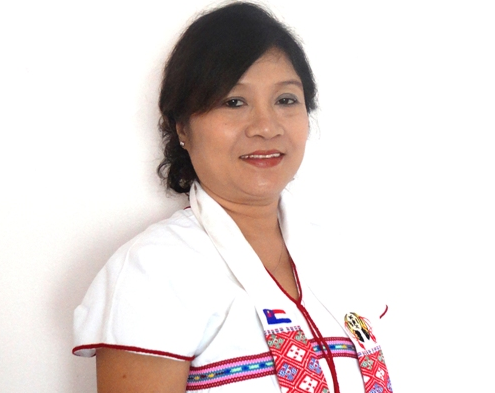As Burma moves to resolve six decades of civil conflict, reports continue of sexual violence in ethnic territories. Women’s support and advocacy groups continue to accuse the Burmese military of using rape as a tool of war; more than 70 cases — about half of them fatal — have been reported since 2011.
In early June, the Burmese government took one step towards ending military rape, when they signed the United Nations’ Declaration of Commitment to End Sexual Violence in Conflict. But not everyone believes that the measure was sincere. Critics say that the government has not advanced a plan to train the military in gender sensitivity, enforce laws about sex crimes, or provide support for survivors. Some have even called the move “a PR exercise”.
A delegation of women and one government official from Burma attended an international summit on sex crimes in conflict earlier this month, hosted by the British government. Upon her return to Rangoon, DVB spoke with Susanna Hla Hla Soe, director of the Karen Women’s Empowerment Group, about the promises made and the root causes of sexual violence.
Q: Now that the Burmese government has signed the UN’s Declaration on Sexual Violence in Conflict, what plans have they put forth to implement it?
A: The government has endorsed the agreement. When we spoke with Burma’s deputy minister of foreign affairs at the summit, he said that he will come back [to Burma] and meet with the government to talk about implementation. He said that success will require collaboration with civil society organisations; that is crucial.
So we welcome this and we are happy. But what we don’t want is for this to be like other agreements, such as CEDAW [Committee on the Elimination of Discrimination against Women]. It was signed 17 years ago and nothing has happened. We don’t want this to happen again, so we really encourage and support the government to take this up – to make sure they stop sexual violence in conflict.
Q: Could you explain why impunity is such a huge problem in Burma’s ethnic territories?
A: Sexual violence is used systematically, and the main problem is the law. There is zero law enforcement on these cases. They excuse it, every time. They say, ‘We, the military have our own law, our own institutions. So don’t worry, we can handle it by ourselves.’ It’s a kind of impunity.
The military needs to be controlled; they should be under civilian control.
Q: What is the role of women in Burma’s peace process? Is there enough representation?
A: Enough? No.
We rarely see women’s participation in the peace process. There is some in Karen, Karenni and Mon [states], but in other cases, we don’t see any women participating in the peace process.
Q: What message would you like to bring back to the women of Burma, following the summit in London?
A: Only one person at the summit talked about the root cause of the problem. It is militarisation. Leymah Gbowee, the Nobel peace prize winner, was the only one to mention the root cause. The others, they didn’t talk about it.
People are using all these polite words. The top leaders talk, they comment, but we’re not clear about the mechanisms, how they will bring justice to the victims. During the summit, we mostly heard from very big organisations, like INGOs and the UN. They’re on the panels; they talk; they use the best words. But we shouldn’t forget the capacity of local organisations. They live with the community, they know the real problems.
[related]



